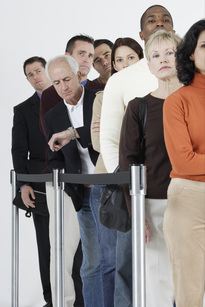Crathes, Drumoak & Durris Community Council Constitution
|
|
|
| ||
Community Councillors Profiles
Community Councillors are all volunteers and do not receive any fees or salaries for the work they conduct within the Community Council. Councillors will be reimbursed for the costs incurred whilst attending to their Community Council obligations, subject to available funding.
|
Crathes Community Councillors
David Morrish
Les Oliver
Nicola Chambury
Ewan Reid
|
Drumoak Community Councillors

Anne Shearer Anne has been resident in Drumoak for over 20 years and joined the community council in 2019 following the closure of Park Bridge. An engineer by background, she continues to campaign for the bridge to be re-opened to light traffic. A keen walker, Anne spends a lot of time in the local countryside, and is keen to represent the local community on issues that affect them. Lynn Coull
Jules Wood
|
Durris Community Councillors
David Edgar
Mark Ansell
Shaun Falcus
|
Contact any councillor at: [email protected]
Community Councillor Vacancies (as of January 2024)
Crathes - 0 Vacancies
Drumoak - 0 Vacancies
Durris - 0 Vacancies
To find out more about becoming a Community Councillor or to simply volunteer to help please see the information on this page below.
Community Councils - What is Our Role
Community Councils are voluntary bodies, which exist within a statutory framework, and which have been granted statutory rights of consultation. The general purpose of a community council is to ascertain, co-ordinate and express the views of the entire community within its agreed boundaries. Community Councils can help ensure that Aberdeenshire Council is as fully informed as possible about the circumstances, needs and wishes of local communities.
Many Community Councils also involve themselves in a wide range of other activities including fundraising, organising community events, undertaking environmental and educational projects and much more. There are currently around 1200 Community Councils in Scotland, all of which are composed of elected volunteers from the community.
Community Councils are non-party-political and non-sectarian in their discussions and in their decision-making.
Community Councils, unlike other community organisations, are statutorily included in the consultation process for all planning applications affecting their area. There are also specific powers in relation to licensing.
Following consultation with the public, Aberdeenshire Council finalised the Scheme for the Establishment of Community Councils. This Scheme came into effect on 1st April 2001. All Community Councils are required to operate within the terms of the Scheme. Further information is available via the Aberdeenshire Council's website on Community Councils, click here
The work of Community Councils varies from council to council, as does the method of operation. Some Community Councils have demonstrated a great deal of imagination in interpreting their role in the community, carrying out tasks such as:
It should not be forgotten, however, that the main purpose of your Council is to represent the views of your community.
Source: http://www.aberdeenshire.gov.uk/communitycouncils/CChandbook_000.pdf
Many Community Councils also involve themselves in a wide range of other activities including fundraising, organising community events, undertaking environmental and educational projects and much more. There are currently around 1200 Community Councils in Scotland, all of which are composed of elected volunteers from the community.
Community Councils are non-party-political and non-sectarian in their discussions and in their decision-making.
Community Councils, unlike other community organisations, are statutorily included in the consultation process for all planning applications affecting their area. There are also specific powers in relation to licensing.
Following consultation with the public, Aberdeenshire Council finalised the Scheme for the Establishment of Community Councils. This Scheme came into effect on 1st April 2001. All Community Councils are required to operate within the terms of the Scheme. Further information is available via the Aberdeenshire Council's website on Community Councils, click here
The work of Community Councils varies from council to council, as does the method of operation. Some Community Councils have demonstrated a great deal of imagination in interpreting their role in the community, carrying out tasks such as:
- Environmental projects.
- Organising local galas.
- Printing and distributing local newsletters.
- Representing Community Councils on other organisations.
- Providing lunch clubs for the elderly.
- Campaigning on local issues.
- Conducting local surveys.
- Organising public meetings on major development proposals or the Local Plan.
- Carrying out Planning for Real exercises.
It should not be forgotten, however, that the main purpose of your Council is to represent the views of your community.
Source: http://www.aberdeenshire.gov.uk/communitycouncils/CChandbook_000.pdf
Am I Eligible? |
To become a Community council member you must qualify to be nominated to stand for election to a specific Community Council. A person seeking election to a Community Council must be 18 years or over and either:
No person shall be entitled to nominate or second more than one candidate. |
A Helping Hand |
We also have a need for general volunteering where local residents who do not necessarily wish to commit to becoming a community councillor, but who is happy to give whatever skills they have within whatever time they can spare.
Specific areas of interest we are seeking is:
|





